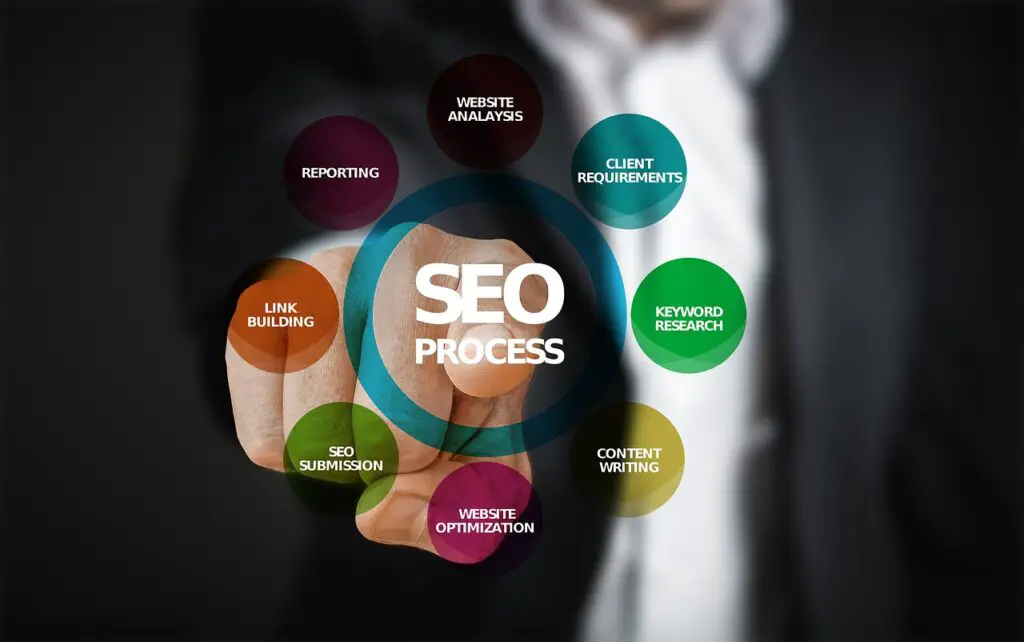SEO and PPC: Two titans of the digital marketing world, each offering unique pathways to online visibility and customer acquisition. But which strategy reigns supreme? The answer, as is often the case in marketing, is “it depends.” Understanding the nuances of Search Engine Optimization (SEO) and Pay-Per-Click (PPC) advertising is crucial for making informed decisions about where to invest your marketing budget and how to achieve your specific business goals. This comprehensive guide will delve into the key differences, advantages, and disadvantages of both SEO and PPC, equipping you with the knowledge to craft a winning digital marketing strategy.
SEO: The Long-Term Organic Game
What is SEO?
Search Engine Optimization (SEO) is the practice of optimizing your website and content to rank higher in search engine results pages (SERPs) for relevant keywords. It’s about making your website appealing to search engines like Google, Bing, and Yahoo, so they deem it worthy of being shown to users searching for specific information.
How SEO Works
SEO involves a multi-faceted approach encompassing various techniques, including:
- Keyword Research: Identifying the terms and phrases your target audience uses when searching for your products or services.
- On-Page Optimization: Optimizing elements within your website, such as title tags, meta descriptions, headings, content, and image alt text.
- Off-Page Optimization: Building your website’s authority and reputation through activities like link building (earning backlinks from other reputable websites), social media marketing, and online reputation management.
- Technical SEO: Ensuring your website is technically sound and easily crawlable by search engines, including site speed optimization, mobile-friendliness, and schema markup.
- Content Marketing: Creating high-quality, valuable, and engaging content that attracts and retains your target audience.
Benefits of SEO

Investing in SEO offers numerous long-term benefits:
- Sustainable Traffic: Once your website ranks high, you can enjoy a steady stream of organic traffic without paying for each click.
- Higher Credibility: Users tend to trust organic search results more than paid ads, perceiving them as more authentic and reliable. A BrightLocal study found that 70-80% of search engine users are focused on the organic results.
- Cost-Effective in the Long Run: While SEO requires an initial investment of time and resources, it becomes more cost-effective over time as you build your online presence.
- Brand Awareness: Consistent high rankings increase brand visibility and recognition.
- Targeted Traffic: SEO allows you to target specific keywords and reach users actively searching for your products or services.
Drawbacks of SEO
Despite its many advantages, SEO also has some drawbacks:
- Time-Consuming: SEO is a long-term strategy that requires patience and persistence. Results can take months or even years to materialize.
- Competitive Landscape: The competition for high rankings can be fierce, especially for popular keywords.
- Algorithm Changes: Search engine algorithms are constantly evolving, requiring you to stay up-to-date with the latest best practices.
- Unpredictable Results: Even with the best SEO efforts, there’s no guarantee of achieving top rankings.
PPC: The Instant Visibility Game
What is PPC?
Pay-Per-Click (PPC) advertising is a form of online advertising where you pay a fee each time someone clicks on your ad. The most popular PPC platform is Google Ads, but other platforms like Bing Ads and social media advertising (Facebook Ads, LinkedIn Ads, etc.) also utilize the PPC model.
How PPC Works
PPC advertising involves the following steps:
- Keyword Research: Similar to SEO, you need to identify relevant keywords to target.
- Ad Creation: Writing compelling ad copy that entices users to click.
- Bid Management: Bidding on keywords to determine how high your ads appear in the search results.
- Landing Page Optimization: Creating relevant and engaging landing pages that convert clicks into leads or sales.
- Campaign Tracking and Optimization: Monitoring your campaign performance and making adjustments to improve your ROI.
Benefits of PPC

PPC offers several immediate benefits:
- Instant Results: Unlike SEO, PPC can deliver immediate results, driving traffic to your website within hours of launching your campaign.
- Highly Targeted: PPC allows you to target specific demographics, locations, interests, and even devices.
- Measurable Results: PPC provides detailed data on campaign performance, allowing you to track your ROI and make data-driven decisions.
- Flexibility and Control: You have complete control over your budget, keywords, ad copy, and targeting options.
- A/B Testing: PPC platforms allow you to easily A/B test different ad variations to optimize your campaigns for maximum performance.
Drawbacks of PPC
Despite its advantages, PPC also has some drawbacks:
- Cost: PPC can be expensive, especially for competitive keywords. You pay for every click, regardless of whether it converts into a lead or sale.
- Requires Expertise: Effective PPC management requires expertise in keyword research, ad creation, bid management, and landing page optimization.
- Temporary Results: Your ads only appear as long as you’re paying for them. Once you stop paying, your traffic disappears.
- Ad Fatigue: Users can become desensitized to ads over time, reducing their effectiveness.
SEO vs. PPC: A Head-to-Head Comparison
Speed and Timeframe
SEO: Long-term investment; results take months to materialize.
PPC: Immediate results; traffic starts flowing within hours.
Cost
SEO: Initial investment of time and resources; cost-effective in the long run.
PPC: Ongoing cost per click; can be expensive for competitive keywords.
Targeting
SEO: Targets users searching for specific keywords related to your products or services.
PPC: Highly targeted based on demographics, location, interests, and devices.
Credibility
SEO: Higher credibility; users trust organic results more than paid ads.
PPC: Can be perceived as less authentic than organic results.
Control
SEO: Limited control over search engine rankings; dependent on algorithm changes.
PPC: Complete control over budget, keywords, ad copy, and targeting options.
Measurability
SEO: Difficult to measure ROI directly; requires advanced analytics tools.
PPC: Highly measurable; detailed data on campaign performance and ROI.
Which Strategy is Right for You?
The best approach depends on your specific business goals, budget, and timeframe. Here are some scenarios:
- New Business Launch: PPC can provide immediate visibility and generate leads while you build your SEO foundation.
- Time-Sensitive Promotion: PPC is ideal for promoting limited-time offers or events.
- Highly Competitive Industry: PPC can help you stand out from the competition and reach your target audience quickly.
- Long-Term Brand Building: SEO is essential for building a sustainable online presence and establishing brand authority.
- Limited Budget: Focus on SEO, but be patient as results can take time.
Often, the most effective strategy is to combine SEO and PPC, leveraging the strengths of both approaches. For example, you can use PPC to test different keywords and landing pages before implementing them in your SEO strategy. Furthermore, strong SEO results can lower your PPC costs over time, as Google rewards websites that offer a high-quality user experience.
Conclusion
SEO and PPC are powerful tools that can drive significant results for your business. Understanding the nuances of each strategy and aligning them with your specific goals is crucial for success. While PPC offers immediate visibility and control, SEO provides long-term sustainable traffic and credibility. By integrating both SEO and PPC into your digital marketing strategy, you can maximize your reach, generate more leads, and ultimately grow your business.


